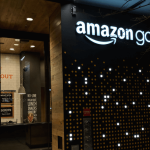Why Sony And Other Big Tech Companies Are Tapping Into The Maker Movement’s Spirit
Sony is trying to tap into some of the mojo of Maker Faire and Indiegogo to bring more innovative, and specialized, gadgets to market. The company recently launched an Indiegogo-like site called Future Lab for the U.S. where it wants to show off products straight out its R&D department in Japan.
It may not be the most obvious road to innovation, especially for such a big, well-established company. But oftentimes, it takes a disruptive approach to get a large organization thinking in a different way. And Sony isn’t alone in using this approach.
The idea is to allow groups of engineers and product designers within these organizations to avoid the typically drawn-out, rigid, and challenging internal processes for bringing products to market. Instead, companies can bring to market new product concepts that might not pass through traditional product development methods, and have a real chance at market success, if on a smaller scale.
Future Lab’s first product, called Concept N is a Bluetooth-enabled wearable that features an audio headset that sits around your neck instead of into your ears. Small speakers in the device emit the audio. The device also houses a camera and other sensors and can be voice-controlled.
The designers will get direct, real-time feedback from potential customers on product concept. “The program will share concept prototypes with users while still at the development stage, and look to them for inspiration, leveraging their feedback to refine and evolve its projects,” Sony said in a statement.
Crowdfunding For Big Fish
Interest in this kind of open development and marketing process is growing rapidly. A number of major companies around the world, including GE, Hasbro, and Harman Kardon, have been slowly building a range of projects that leverage the crowdfunding models popularized by websites like Indiegogo and Kickstarter.
In fact, last year, Indiegogo specifically created an effort to drive enterprise-sized businesses to use its crowdfunding approach to product development.
Sony originally started its crowdfunding effort in Japan last year with a project, called First Flight, which tried out a variety of different gadget ideas with Japanese consumers. These included an ePaper display-based watch called , an ePaper display-based universal smart home remote called HUIS Remote Controller, and several others. While there are no current plans to bring those products to the U.S., the company recently announced plans to leverage similar product development concepts to bring some other, more experimental products here.
Sony’s First Flight program in Japan differs from Future Lab in the U.S. in one key way: It actually raised funding from consumers, while Future Lab is focused on collecting consumer feedback. In all instances, Sony is giving consumers direct access to R&D projects that, in the past, may not have seen the light of day. In a sense it’s like automakers showing concept cars, but the products have a better chance of actually making it to market.
More importantly, these kinds of efforts also tap into some other key trends that are starting to impact the consumer electronics industries overall. First, the spirit of experimentation and innovation found in the maker movement is now bleeding over into mainstream tech companies. Companies that can tap into the opportunities they uncover have a good chance at market success.
But the new crowdsourced development techniques are not about creating megahits that everyone has to have. Instead, these new developments highlight another important trend that the maker movement is helping to spawn: the need for product specialization and customization.
We’re entering an area where offering products that meet unique needs is going to be increasingly common and important—the long tail of hardware, if you will. Key tech hardware product categories have matured and sales in those categories have started to slow, but that doesn’t mean people aren’t interested in new innovations. Tech buyers will simply have more specialized requirements, and they’ll expect tech companies to suit them.
The possibility of the consumer electronics industry being driven forward by a much wider array of products, each of which sells in much smaller quantities, is not that farfetched anymore, especially given the efficiencies that online commerce now enables. That’s why the concept of creating and unleashing lots of intriguing new hardware gadgets could very well be the key to firing up new levels of innovation inside big companies like Sony.
Bob O’Donnell is the president and chief analyst of TECHnalysis Research, LLC a market research firm that provides strategic consulting and market research services to the technology industry and professional financial community. You can follow him on Twitter @bobodtech.
Fast Company , Read Full Story
(10)













